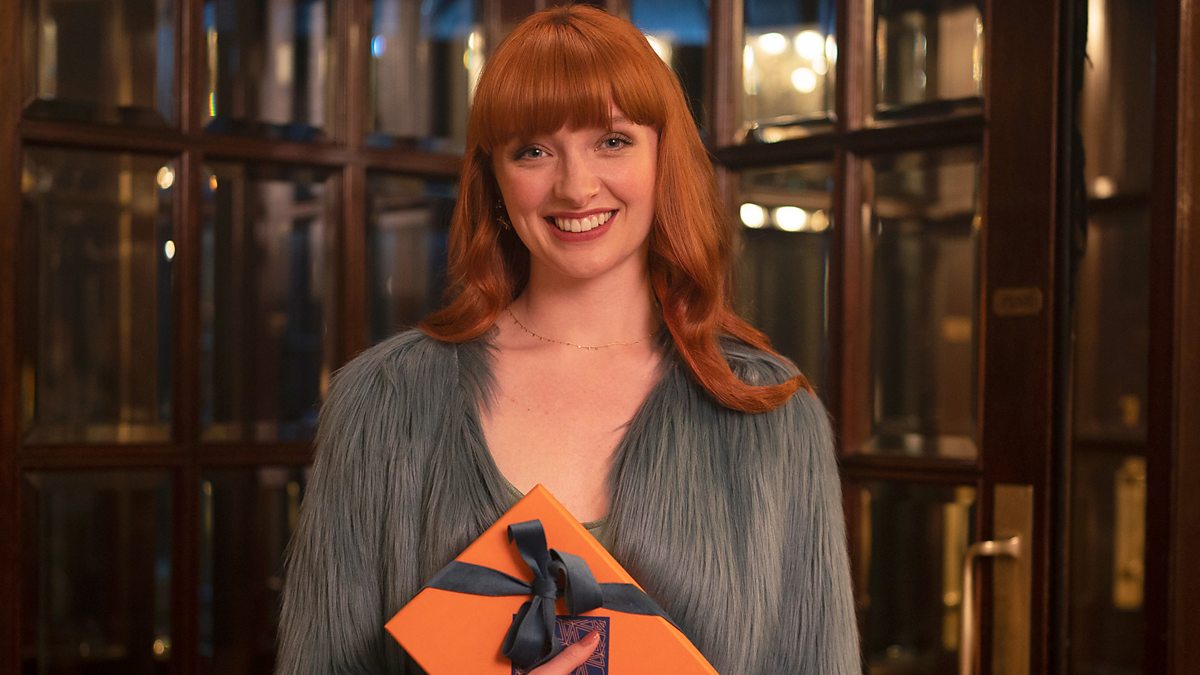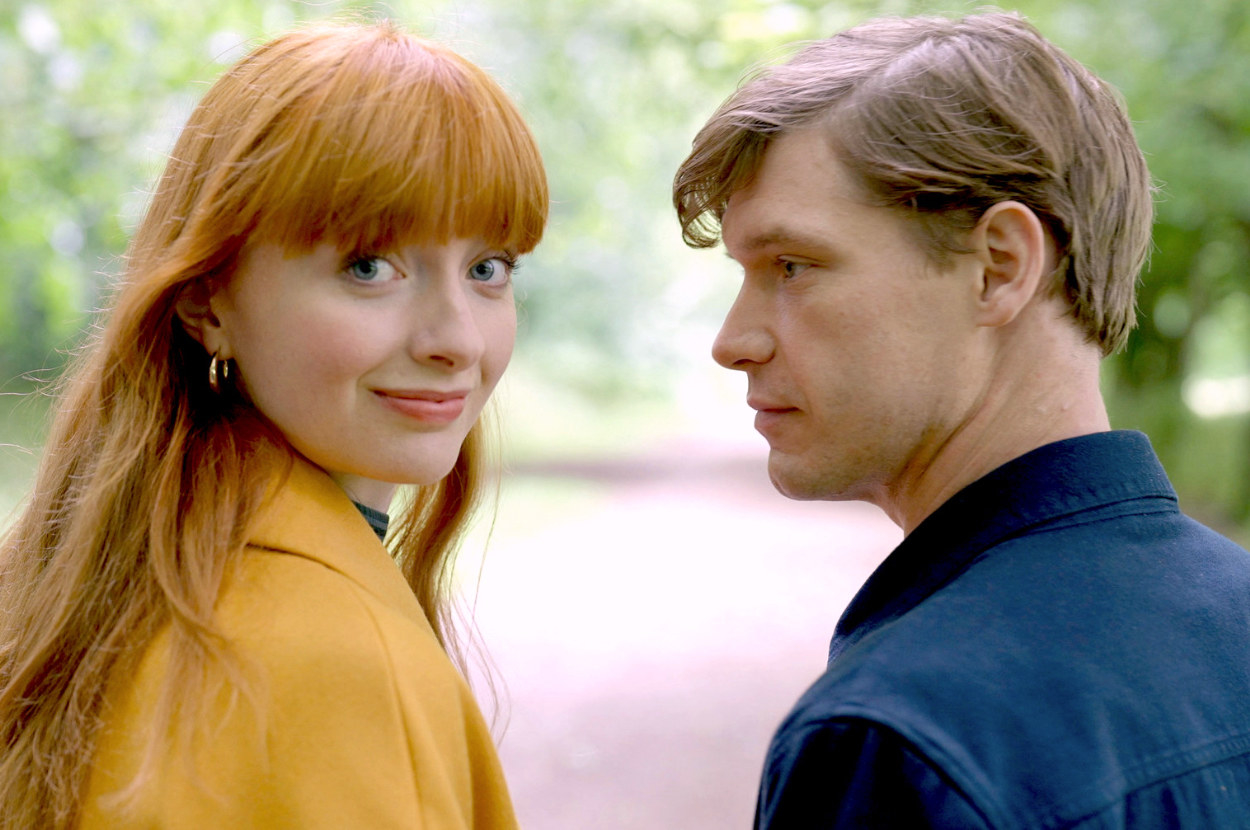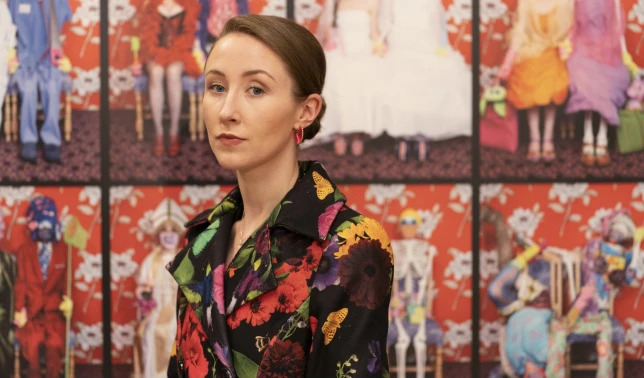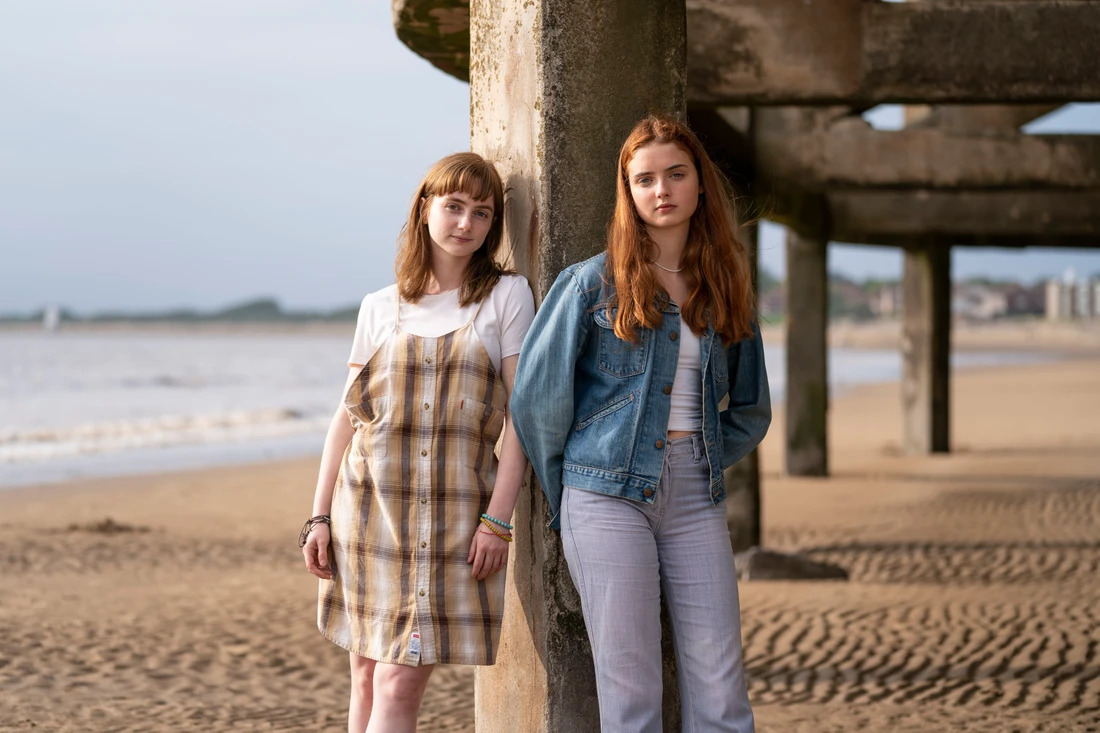‘Chloe’ is a psychological thriller show created by Alice Seabright, who is most known for her work on ‘Sex Education.’ The six-part series revolves around Becky Green (Erin Doherty), a lonely young woman in her 20s. She lives in a seaside home in Bristol with her mother, who has begun to display early signs of dementia. Desperately wanting to leave behind the life she considers miserable and boring, Becky often assumes various identities and crashes parties and events hosted by the members of the privileged class. On social media, she is obsessed with the life of a woman her age named Chloe Fairbourne (Poppy Gilbert). When Becky learns that Chloe is dead, she infiltrates the other woman’s circle of friends, gradually replacing Chloe in the lives of her husband and her friends. It is later revealed that Chloe and Becky were childhood friends, and the latter is the last person Chloe called before her death.
‘Chloe’ is a timely show about our social media-obsessed culture. If that has made you wonder whether it is inspired by real events, we got you covered.
Is Chloe a True Story?
No, ‘Chloe’ isn’t based on a true story but has certain elements of reality embedded in it. Seabright shares the writing credits for the show with Poppy Cogan and Kayleigh Llewellyn. Bolu Babalola and Sam Baron provided additional story materials, but they were reportedly uncredited. After Seabright was named one of the Screen International Stars of Tomorrow in 2019, she joined the production crew for the second season of ‘Sex Education’ and started developing ‘Chloe.’

According to Seabright, there is something about Becky that made everyone in the production team find her relatable. This is despite the fact that none of them “ever infiltrated the life of our dead ex-best friend.” While Becky is an example of the extreme, the voyeuristic aspect of her personality has become increasingly common in the era of social media. We see people’s lives through the prism of the edit button and become envious of it, not understanding what we tend to regard as perfection is simply the result of multiple omissions. ‘Chloe’ offers the perception of both sides. As Becky becomes a member of what was used to be Chloe’s group, she realizes that despite what the recently deceased portrayed on social media, she was very unhappy with her life.

Seabright told The Guardian that after watching the show for the first time, she felt vulnerable as if it was the day after a night of drinking. “The next day you think: why did I tell them all that stuff about me? I felt like that: too exposed, uncomfortable and kind of gross,” she explained.
As mobile phones are a quintessential part of the narrative, Seabright had to incorporate them into the story in a way that would look seamless. She apparently had some trouble with it. “I feel like I never want to see a phone again – it was a [expletive] nightmare,” she declared, adding, “It’s a really, really hard thing to figure out how to storytell through screens. But so much of our drama literally plays out on our phones. I couldn’t get around it.”

Seabright utilized two techniques to deal with the problem. The first thing was that she and her team made Becky’s phone an active part of the narrative, full of meaning. The second thing they did was turn the still photos that Becky sees on Instagram into short scenes, which — in terms of the narrative — take place in Becky’s mind. It’s what she thinks is the context of that photo. As a show, ‘Chloe’ holds up a mirror to today’s society. But ultimately, it is not based on a true story.
Read More: How Did Chloe Die? Did Chloe Commit Suicide? Theories


You must be logged in to post a comment.